- Synaptic Finance
- Posts
- Why Atlanta Is the Fintech Launchpad Every Global Startup Needs to Know About
Why Atlanta Is the Fintech Launchpad Every Global Startup Needs to Know About
Transaction Alley Meets the Future of Fintech: My Week in Atlanta
Atlanta might not be the first city that comes to mind when you think about global fintech hubs, but it should be. Last week, I discovered why the Irish government sees this Georgian powerhouse as a critical entry point for European startups scaling to the United States. After an intensive week in Atlanta attending The Venture Atlanta Conference and exploring the city's remarkable ecosystem, I'm convinced that Atlanta, affectionately known as "Transaction Alley," represents one of the world's most overlooked opportunities for fintech, payments, and blockchain companies.
My journey to Atlanta began with a conversation with Mark Leonard. Mark has established himself as a leading expert on international financial services expansion, particularly for companies looking to establish their North American presence. His strategic insights about Atlanta's unique positioning convinced me this wasn't just another conference trip; it was an essential reconnaissance mission.
What I found exceeded even Mark's enthusiastic recommendations.
Transaction Alley: Where 70% of US Payments Flow
Atlanta's nickname as "Transaction Alley" isn't marketing hyperbole; it's a mathematical fact. An astonishing 70% of all payment transactions in the United States pass through companies headquartered in metro Atlanta. To put this in perspective, that's over 118 billion transactions annually, representing more than $2 trillion in transaction value.
The city hosts more than 200 fintech companies generating over $72 billion in annual revenue, employing nearly 50,000 professionals in the sector alone. This concentration of payments expertise rivals, and in some ways surpasses, Silicon Valley's fintech capabilities. Major players including ACI Worldwide, Equifax, Fiserv, First Data, FIS Global, NCR, Global Payments, and Worldpay have all established significant operations in the Atlanta metro area.
This didn't happen by accident. In 1987, Georgia lawmakers lifted caps on credit-card interest rates and annual fees, triggering an exodus of payment processing companies from traditional financial centers to Atlanta. What followed was four decades of steady ecosystem building, talent development, and infrastructure investment that has created what might be the most payments-focused city on the planet.
My Week in Atlanta: A Deep Dive Into the Ecosystem
My exploration of Atlanta's startup ecosystem was expertly guided by Lucas Timberlake from Fintech Ventures. Lucas embodies the depth of venture expertise available in Atlanta; he's a General Partner focused on early-stage fintech and insurtech investments, with particular emphasis on alternative lending and private credit. His firm takes what he calls "a private equity approach to early stage investing," focusing on unit economics and helping companies raise credit facilities from day one.
Lucas organized a week of strategic introductions that revealed both the breadth and interconnectedness of Atlanta's fintech community.
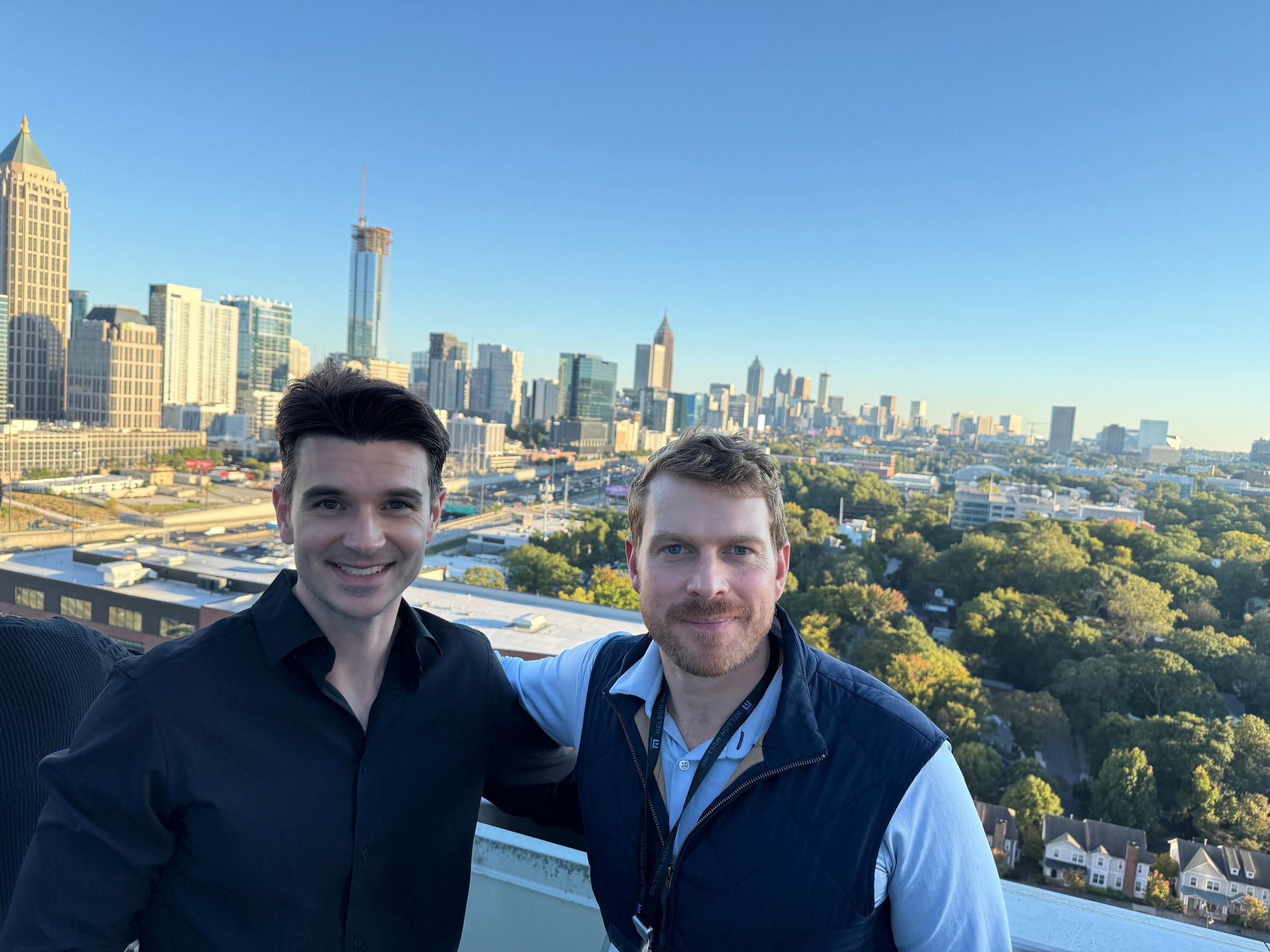
Brightlane: Innovation at the Local Level
One of my first meetings was with the Brightlane team and Barclay Keith. Brightlane recently launched as an innovative venture studio focused specifically on building B2B fintech startups from the ground up. Their focus on compliance automation, risk oversight, and operational resilience addresses critical pain points for financial institutions, particularly banks and credit unions under $10 billion in assets.
What impressed me about Barclay was his deep operational expertise. Barclay previously served as CEO of Momnt (an embedded financing platform) from 2019-2024. They're not theorists; they've built, scaled, and successfully exited fintech companies, and now they're applying those lessons to create the next generation of solutions. This kind of experienced entrepreneurship is exactly what makes Atlanta's ecosystem so valuable for founders looking to learn from those who've navigated the journey before.
RevTech Labs and the Power of Accelerators
The RevTech Labs event, sponsored by Nelson Mullins, showcased why Atlanta has become such a magnet for fintech accelerators and support programs. Kristina Morris from ICBA (Independent Community Bankers of America) delivered insights on how community banks are driving fintech innovation. Kristina, who previously served as project manager for FinTech Atlanta, now leads ICBA's innovation investments and works directly with the ICBA ThinkTECH Accelerator cohorts.
Watching the RevTech Labs cohort present their companies reinforced something I've noticed across multiple ecosystems: the quality of support infrastructure matters more than geographic location for early-stage success. RevTech Labs operates a hybrid 12-week accelerator program for fintech, insurtech, and healthtech companies, providing the kind of focused mentorship that can compress years of learning into months.
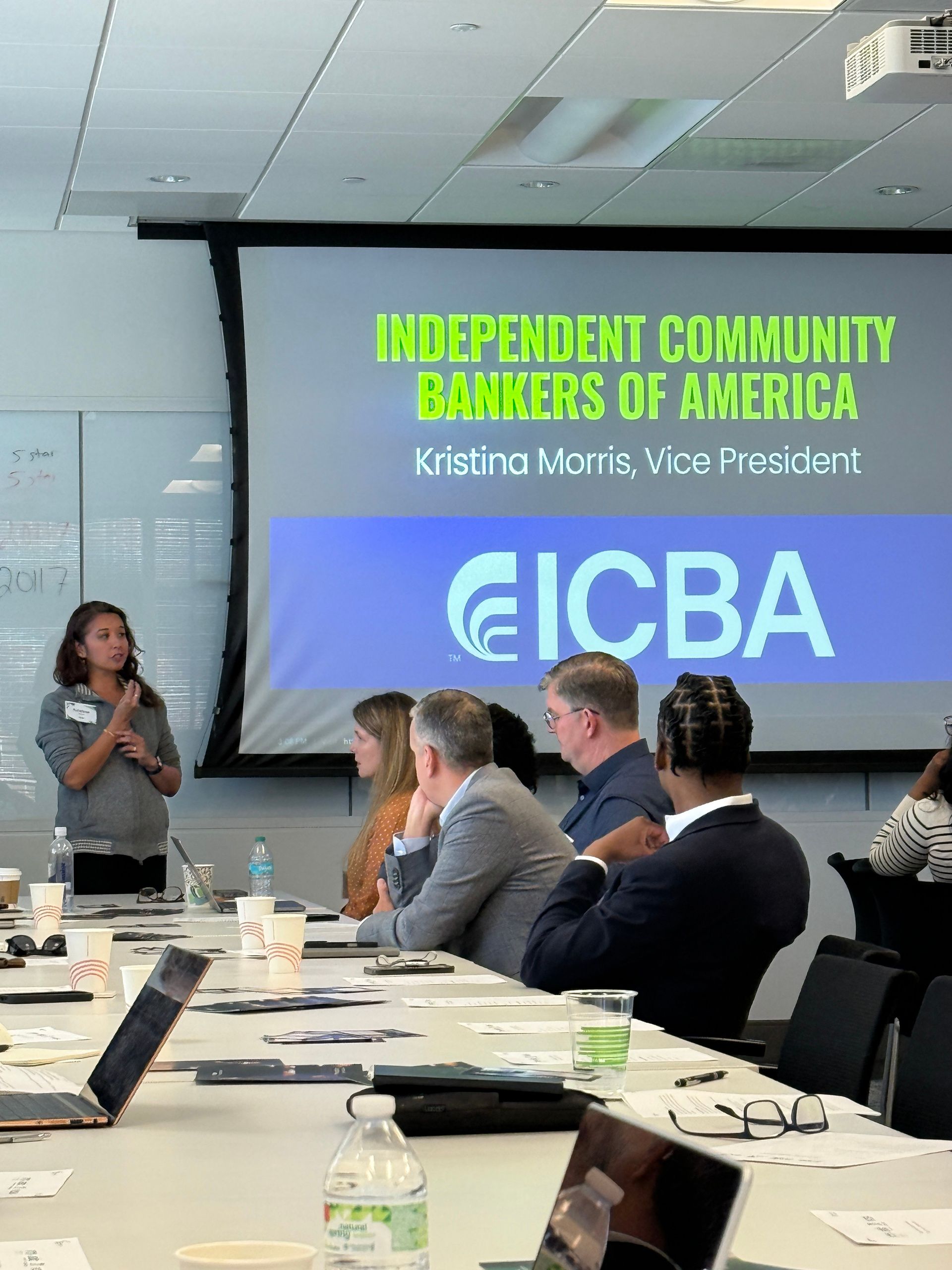
Glen Sarvady and the BIGCast Podcast
Meeting Glen Sarvady from 154 Advisors was another highlight. Glen is the Managing Principal at 154 Advisors and co-hosts the BIGCast Podcast, where he and John Best dive deep into financial industry breakthroughs and innovation. With more than 25 years of experience in payments and fintech, Glen brings a wealth of institutional knowledge to his advisory work.
Glen is also Co-Chair of the TAG Fintech Society, which produces comprehensive reports on Georgia's fintech ecosystem and hosts events like Fintech South. His perspective on how Atlanta's ecosystem has evolved, and where it's heading, provided valuable context for understanding the strategic opportunities available to companies establishing a presence here.
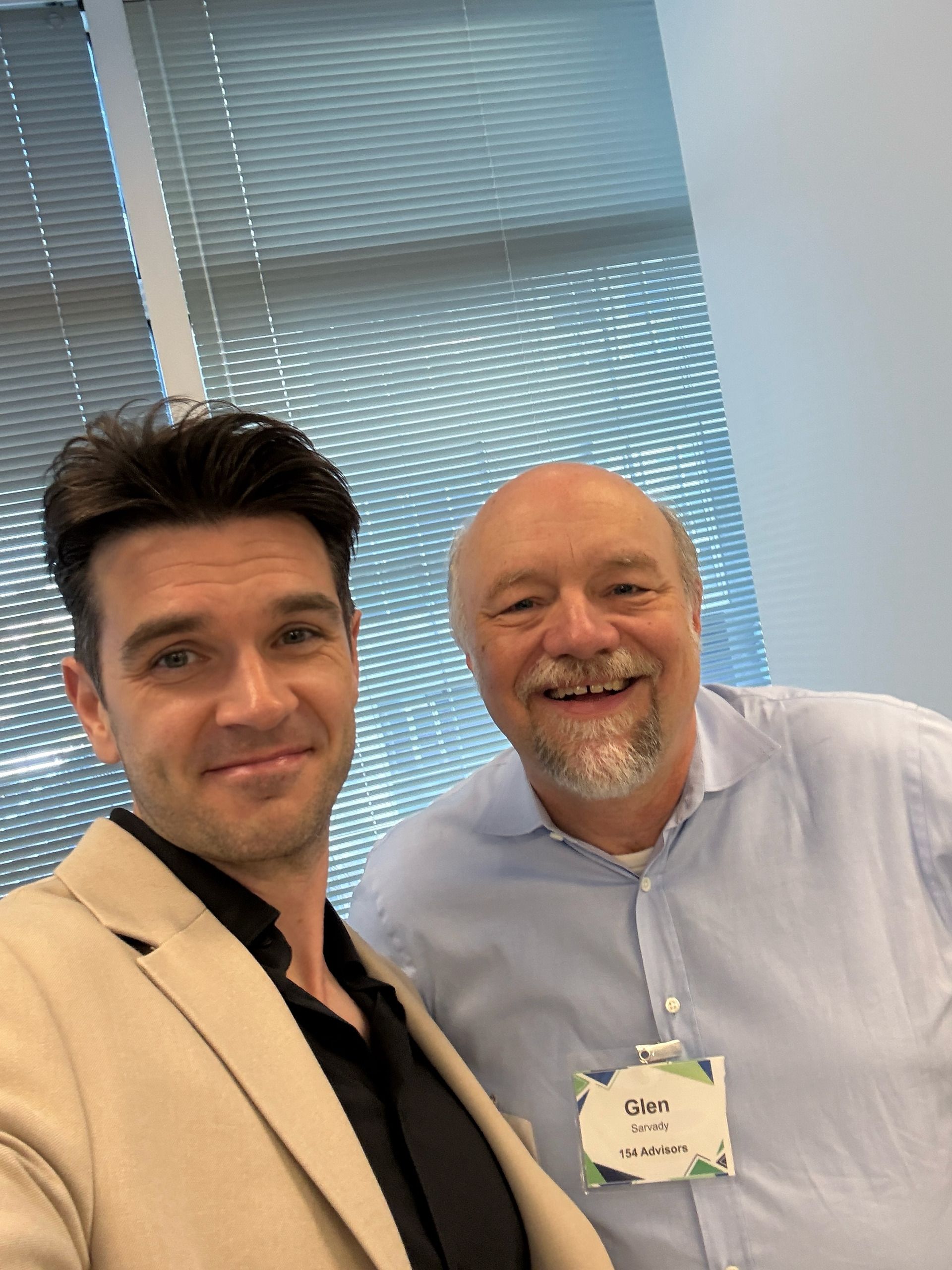
Early Morning Networking: The Founder Funder Jog
At 6:45 AM on Wednesday morning, I joined what might be Atlanta's most efficient networking format: the Founder Funder Jog through Piedmont Park. Led by Katie Begando, Dennis Cranstoun, and Katherine O'Day from Atlanta Ventures, this 3-4 mile community jog brings together founders and investors in a relaxed, high-energy setting.
There's something refreshingly direct about pitching your company while running. The format strips away pretense and creates a genuine connection. By the time we finished the loop, I'd made several valuable introductions and learned that Atlanta Ventures has been hosting these runs as part of their broader community-building efforts.
The jog was powered by TrackCred (a private community of investors and entrepreneurs in human performance innovation) and Bluubird (an intelligence platform for outdoor and athletic gear), showcasing how Atlanta's startup community spans far beyond fintech.
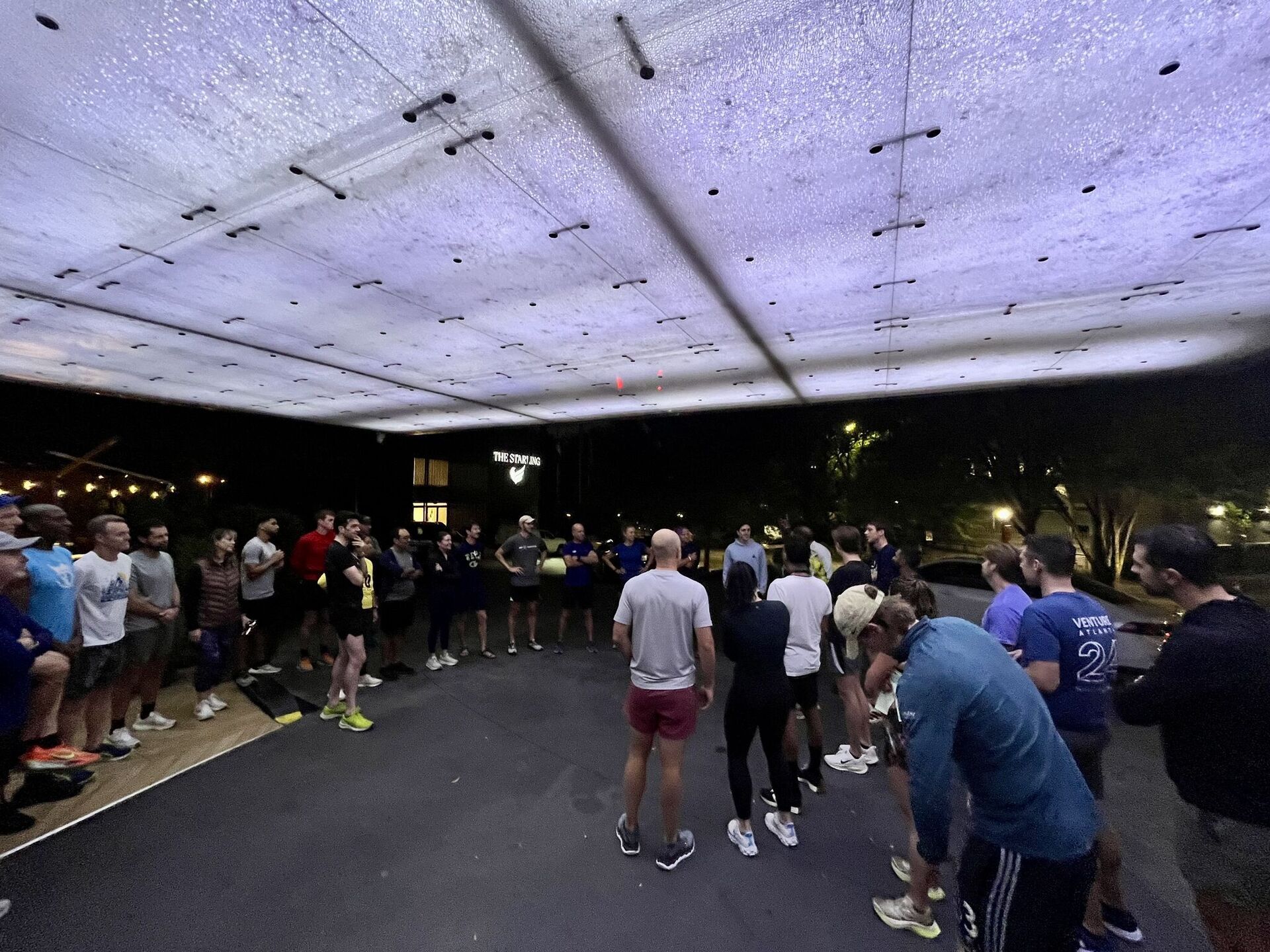
The Venture Atlanta Conference: Perfectly Sized for Meaningful Connection
The main event of my week was the two-day Venture Atlanta Conference at The Woodruff Arts Center and Atlanta Symphony Hall. Having attended numerous venture conferences across the United States and Europe, I can say definitively that Venture Atlanta has achieved something special. It's large enough to attract serious capital and impressive companies, but intimate enough that meaningful networking actually happens.
The conference drew over 1,500 attendees, including 450 funds from across the nation. Eighty-eight companies were selected to present from a record 630 applications, a 15% increase over the previous year. The conference featured everything from pre-seed startup showcases to growth-stage company presentations spanning 15 different industries.
What struck me most about Venture Atlanta was its regional focus. While the conference was less international than mega-events like Money 20/20 or Collision, this actually became an advantage. The Southeast ecosystem was well-represented, and the conference provided an ideal environment for getting to know people rather than collecting business cards.
IDA Ireland's presence at the conference was particularly notable and strategic. Seeing the Irish stand and witnessing the active engagement of IDA representatives demonstrated why Irish startups are viewing Atlanta as a key market. The Irish government clearly recognizes what I observed firsthand: Atlanta offers a unique combination of established infrastructure, accessible capital, and genuine community support that makes it an ideal launchpad for international expansion.
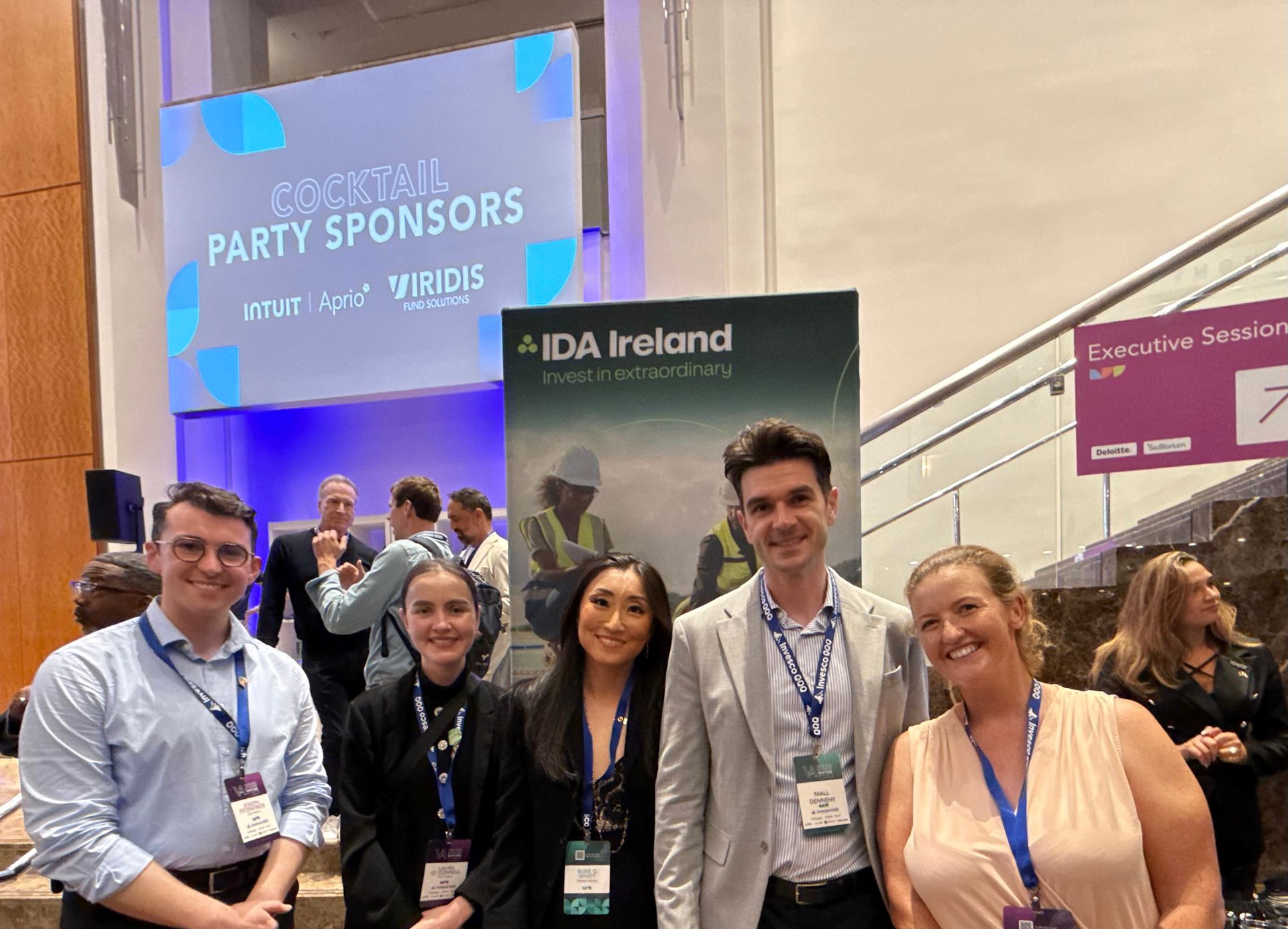
Enterprise Ireland: Strategic Support for Scaling
My meeting with Adam Rooney from Enterprise Ireland reinforced the strategic importance of Atlanta for Irish companies. Adam is a Trade Development Executive based in Enterprise Ireland's new Atlanta office, the agency's first in the Southeast, where he focuses on financial technology and services.
Enterprise Ireland is the investment arm of the Irish government and the largest domestic seed-stage investor in Europe by deal flow and the fourth largest globally. Their decision to establish an Atlanta presence signals a major commitment to supporting Irish companies scaling in the Southeast United States.
Adam's insights into how Enterprise Ireland supports companies were impressive. The organization provides not just capital, but strategic market intelligence, partnership introductions, and ongoing support throughout the scaling process. For Irish entrepreneurs looking to establish US operations, Enterprise Ireland's Atlanta office provides a critical bridge to the Southeast market.
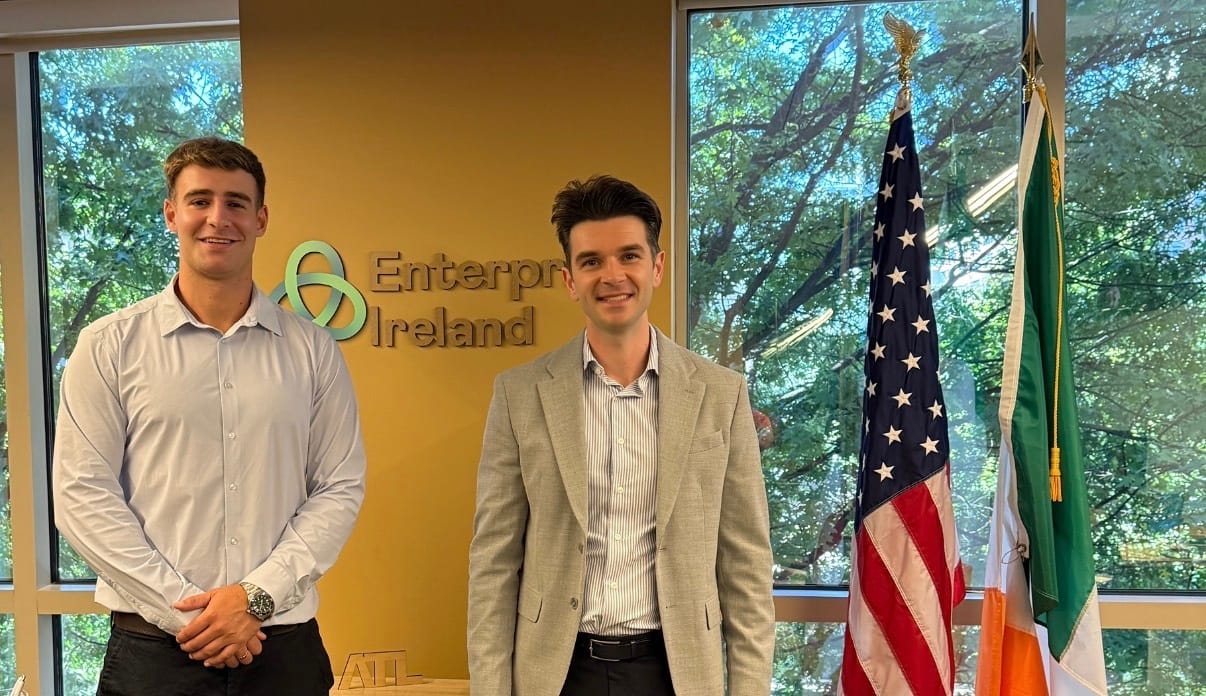
Meeting the Wryver Team
I also had the opportunity to meet with Brian Lanehart and Lena McDearmid from Wryver. Brian brings impressive credentials; he's currently a Technology Strategist and CIO Advisory professional at Slalom, and previously served as President/CTO and Co-Founder of Momnt Technologies. His experience spans enterprise architecture, AI/ML modeling, payments strategy, and startup leadership.
Lena founded Wryver to help create workplaces where people can show up authentically, lead with humanity, and deliver remarkable results without sacrificing wellbeing.
The FutureTech Georgia Conference: The Week's Hidden Gem
If I'm being honest, the FutureTech Georgia Conference was arguably the best event of the entire week. Marcelo Bernal, who was recently appointed as the President & Chief Revenue Officer of Buckzy Payments Inc. and a startup advisor, told me about the event and made numerous introductions before. This was the conference's inaugural year, organized by Peter Saddington and Tony Erwin, and it focused squarely on Web3, blockchain, AI, and emerging technologies relevant to Georgia's business ecosystem.
Peter Saddington is a 4-time startup founder, investor, and Certified Scrum Trainer with over 20 years in software development. He holds three Master's degrees and serves as General Partner of StaaS Fund, a $16 million AUM venture studio. He's also a published author and frequent keynote speaker on Web3, AI, startups, and venture capital.
Tony Erwin brings over 20 years of Silicon Valley tech experience and holds a Master's degree in Finance. He owns Skyrocket Financial Solutions, a blockchain consulting company, and serves as Georgia's representative for the U.S. Blockchain Coalition and as an ambassador for the Global Blockchain Business Council. He's also a co-author of a book on sustainability and fintech.
The FutureTech Georgia Conference brought together speakers and panelists who weren't just talking about blockchain in the abstract; they were building real businesses leveraging these technologies in Georgia. The half-day event at INVESCO featured keynotes from UBS on Web3 and blockchain adoption, panels on DeFi and finance policy, and extensive networking opportunities.
What made this event exceptional was the quality of the attendees. Everyone in the room was there because they're actively working on Web3, blockchain, or digital asset projects. The conversations were substantive, technical, and focused on real implementation challenges rather than theoretical possibilities.
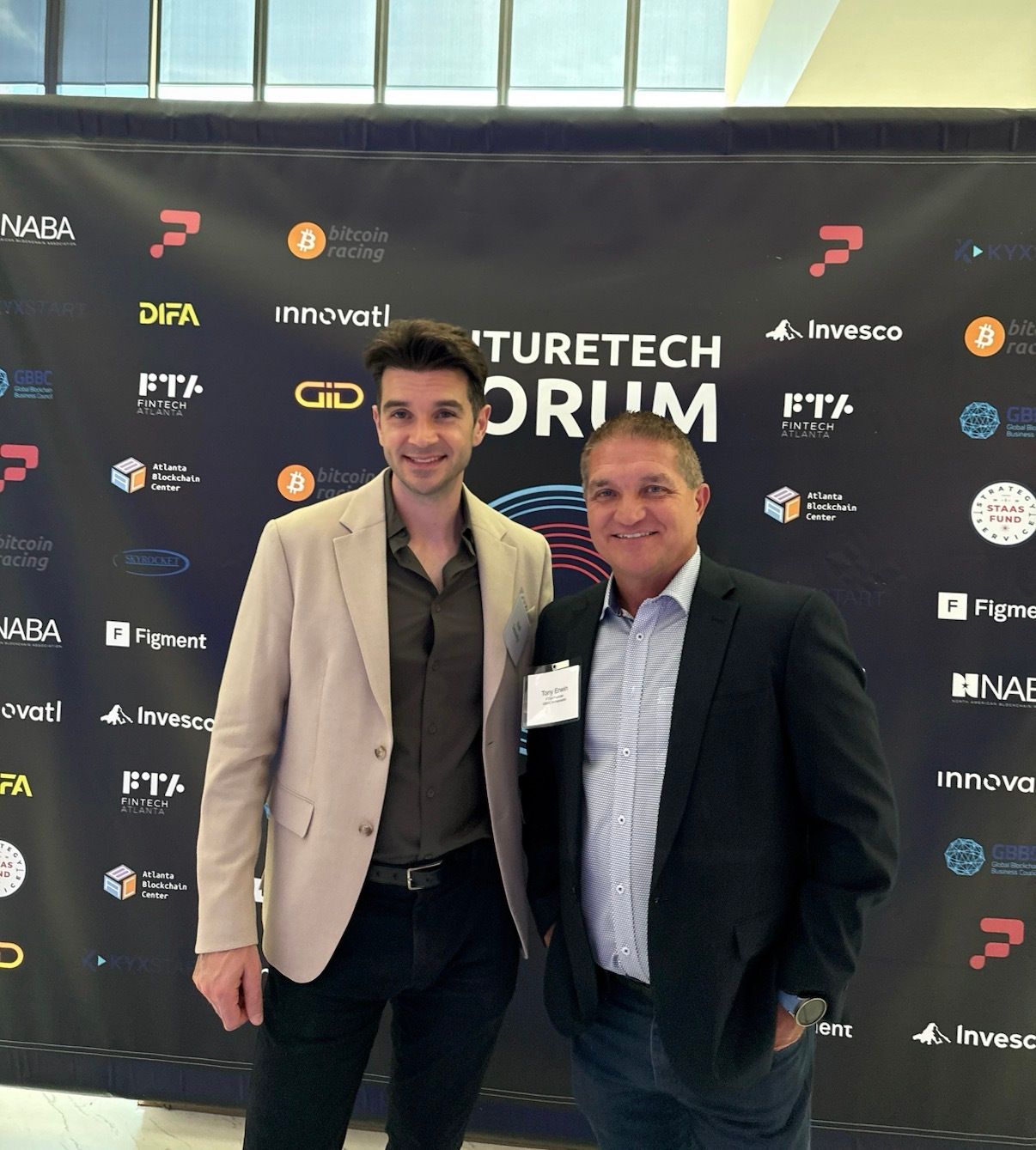
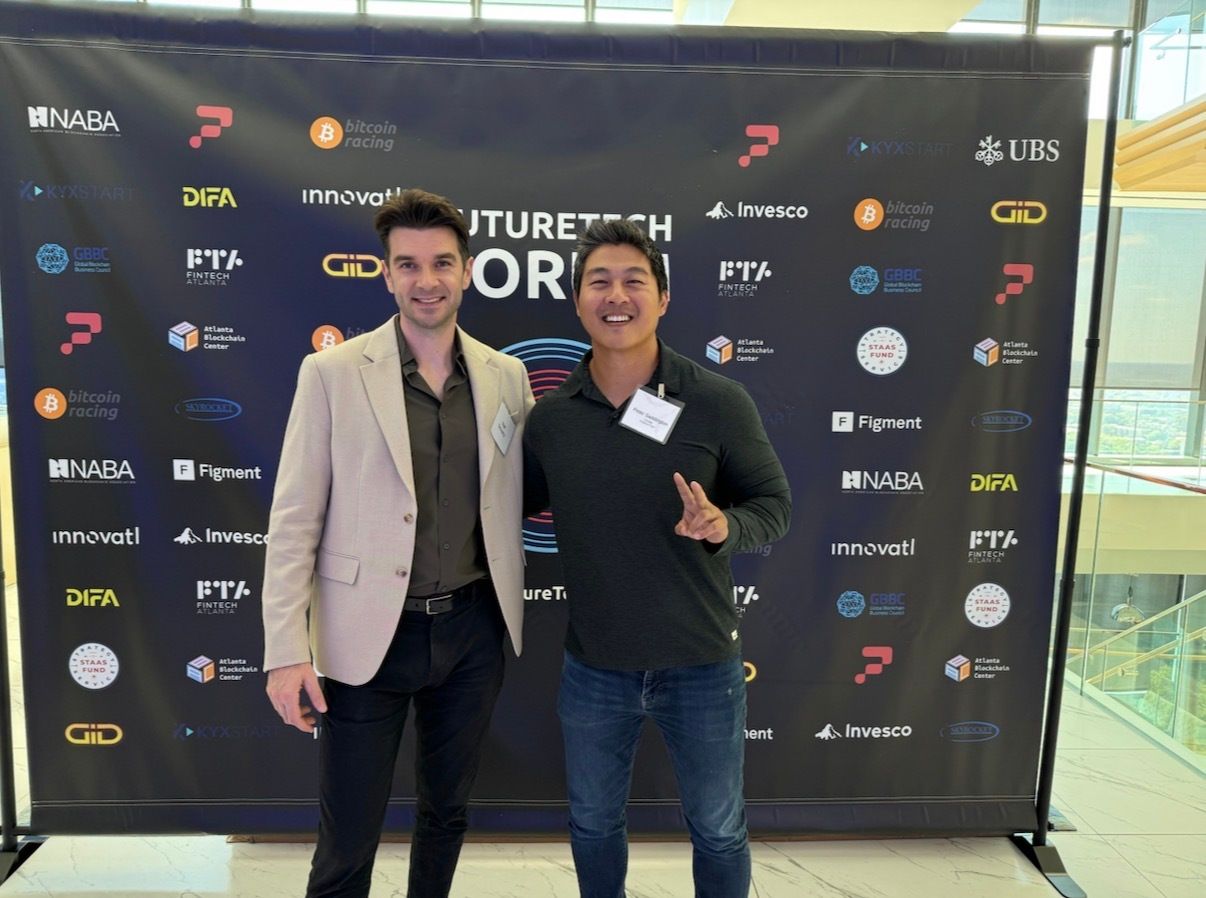
The Support Infrastructure: Local, Municipal, and State Level
One of Atlanta's most compelling advantages for startups is the comprehensive support available at every level of government and institution.
Academic Foundation
The Georgia Fintech Academy represents a state-wide talent development initiative co-developed by Georgia State University's Robinson College of Business and the University System of Georgia. The Academy spans 26 universities across Georgia and partners with more than 30 fintech employers, creating a talent pipeline that addresses the sector's critical skills needs.

The Advanced Technology Development Center (ATDC) at Georgia Tech operates a dedicated fintech program that helps startups launch and scale by connecting them to mentors, industry partners, and funding. ATDC provides structured programs, investor match-making, and access to Georgia Tech's considerable technical expertise.
Atlanta Tech Village serves as one of the largest tech hubs in the Southeast, housing hundreds of startups and providing community programming and fundraising connections. The Village exemplifies Atlanta's collaborative culture; it's not just office space, it's a genuine community focused on helping companies succeed.

Investment and Accelerator Support
Beyond individual programs, Atlanta offers a density of accelerators and investment vehicles. Atlanta Ventures, Engage Ventures, TechSquare Labs, BIP Capital, and numerous other organizations provide structured support for companies at different stages.
The city also benefits from corporate innovation programs run by major Atlanta-based companies, including Delta Air Lines, The Home Depot, Coca-Cola, and UPS. These programs often provide both capital and strategic customers for startups solving enterprise problems.
Government Support and Incentives
Georgia offers multiple tax incentives for startups, including the Job Tax Credit that rewards companies creating employment opportunities, particularly in less-developed areas. The Research and Development Tax Credit encourages innovative research activities, providing meaningful financial support for companies developing new technologies.
Invest Atlanta provides guidance, incentives, and partnerships designed to support business formation and growth. The Georgia Department of Economic Development offers additional resources, including the Quality Jobs Tax Credit and various research and development incentives.
Why Atlanta Works: The Essential Ingredients
After a week immersed in Atlanta's ecosystem, several factors explain why the city has become such a fintech powerhouse:
Critical Mass in Payments: With 70% of US payment transactions flowing through Atlanta companies, the city offers unparalleled domain expertise, talent, and partnership opportunities for any company in the payments.
Accessible Capital: Atlanta's venture capital community is substantial but not overwhelmed. Firms like Atlanta Ventures, BIP Capital, TechSquare Ventures, Fintech Ventures, and numerous others provide capital and expertise without the hypercompetition of Silicon Valley.
Genuine Community: Unlike ecosystems where competition dominates, Atlanta's startup community demonstrates a remarkable willingness to make introductions, share knowledge, and support fellow founders. This "rising tide lifts all boats" mentality accelerates company growth.
Strategic Geographic Position: Atlanta's location makes it accessible to both East and West Coast markets, with Hartsfield-Jackson Atlanta International Airport providing direct flights to virtually anywhere.
Cost Advantage: Compared to San Francisco, New York, or Boston, Atlanta offers significantly lower costs for office space, living expenses, and talent, allowing startup capital to go further.
Institutional Support: The combination of strong universities, government programs, corporate innovation centers, and accelerators creates a support infrastructure that helps companies navigate the challenging early stages.
The Path Forward: Atlanta as Strategic Entry Point
Atlanta represents more than just another market; it's a strategic entry point to the United States that offers specific advantages for our business models.
The week also reinforced the value of face-to-face relationship building. While virtual meetings can maintain relationships, nothing replaces the depth of connection formed through events like the Founder Funder Jog, conference hallway conversations, and impromptu coffee meetings arranged through warm introductions.
Conclusion: Atlanta Demands Attention
If you're a European founder, particularly an Irish founder, considering US expansion, Atlanta deserves serious evaluation. The city offers a rare combination of deep sector expertise, accessible capital, genuine community support, and comprehensive infrastructure that makes it an ideal launchpad for global companies.
My week in Atlanta transformed my understanding of the city's role in the global fintech ecosystem. This isn't an emerging market or a secondary hub; it's the nerve center of American payments infrastructure wrapped in a genuinely supportive entrepreneurial community.
Thanks to Mark Leonard for the introduction and recommendation, to Lucas Timberlake for masterfully orchestrating a week of strategic meetings, and to the entire Atlanta ecosystem for the remarkably warm welcome. For founders building in fintech, payments, or blockchain, Atlanta isn't just worth a visit; it's essential reconnaissance for anyone serious about scaling globally.
The only question left: when will you make your own pilgrimage to Transaction Alley?